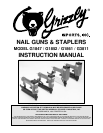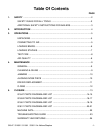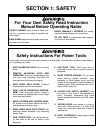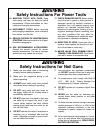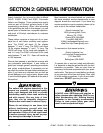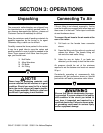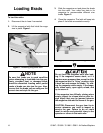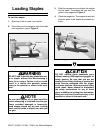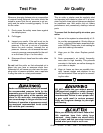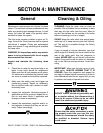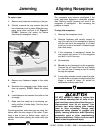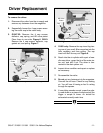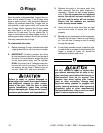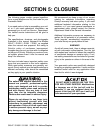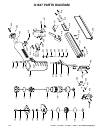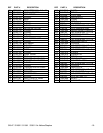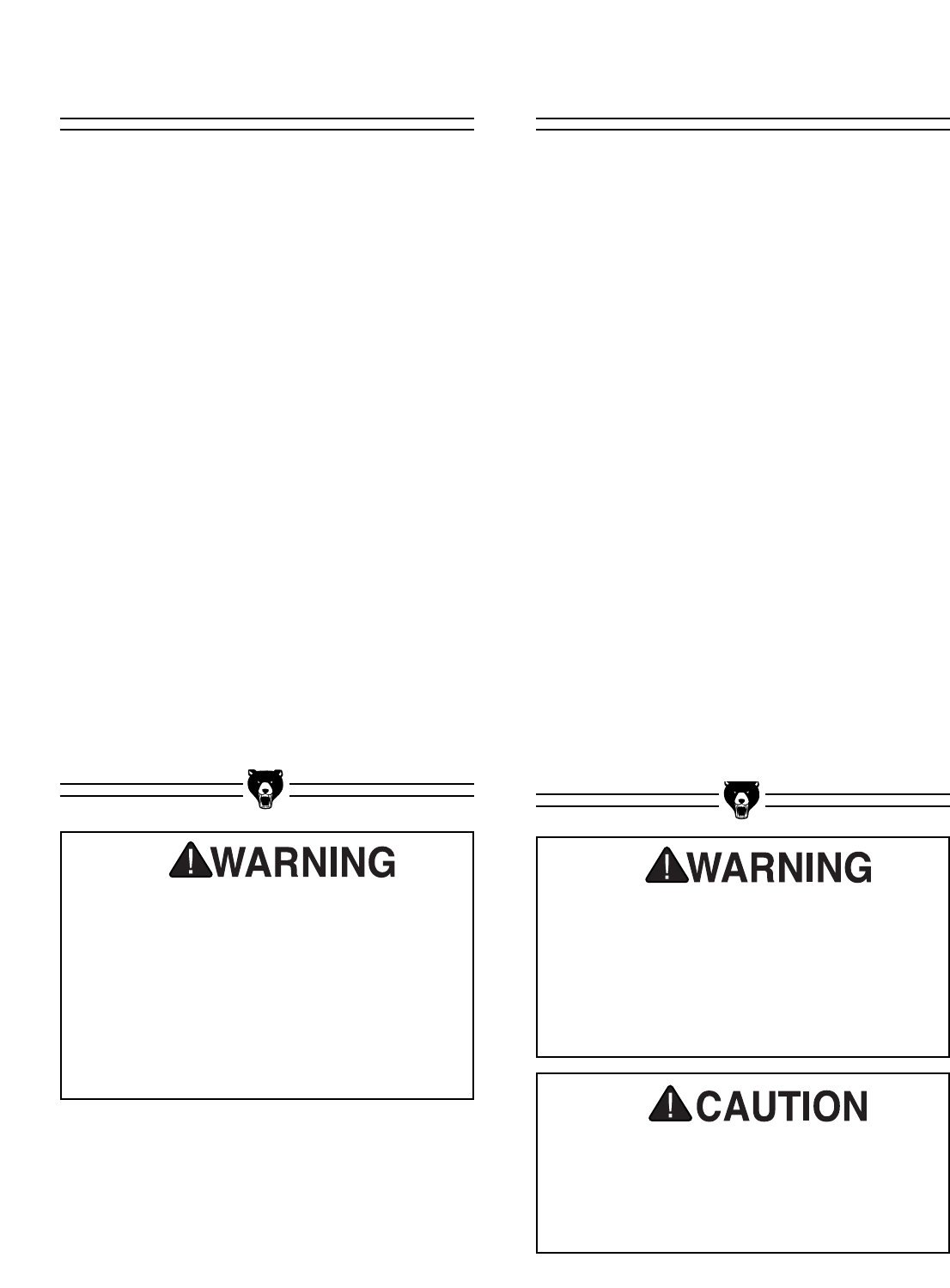
-8- G1847 / G1852 / G 1861 / G3811 Air Nailers/Staplers
Whenever changing fastener size or composition
of material being fastened, the nailer should be
tested to ensure that the air pressure is set cor-
rectly and the nailer is working properly. To test
fire the nailer:
1. Firmly press the safety nose down against
the sample piece.
2. Pull trigger.
3. Inspect your results. If the nail is set too far
into the workpiece, reduce the regulated air
pressure. If the nail is not set or protrudes
above the work surface, increase the air
pressure. However, do not exceed the maxi-
mum air pressure recommended for the nail-
er or the hose (90 p.s.i. for the nailer).
4. Disconnect the air hose from the nailer when
finished.
Do not hold the nailer so that exhausted air is
blown into your face or someone else’s face.
Exhausted air will cause any dust near the oper-
ating nailer to become airborne; use a respirator
if using the nailer in a dusty environment.
Test Fire
This air nailer or stapler must be regularly oiled
and operated with treated or clean air. It is a pre-
cision tool with close internal tolerances designed
for repetitious use. Wet and/or dirty air lowers
performance and prematurely destroys internal
parts.
To ensure that the best quality air enters your
nailer:
1. Use an in-line system to automatically oil, fil-
ter, and dry compressed air. Grizzly offers an
in-line regulator/filter/water-separator/lubri-
cator (G2304). Please refer to our catalog for
price and ordering information.
2. Keep your air filter clean. Replace periodi-
cally.
3. Drain compressor’s air tank(s) frequently;
more often in high humidity. This prevents
corrosion in the tanks, as well as damage to
your nailer or stapler.
4. Keep air hoses as clean as possible inter-
nally. Inspect nipples and couplers for any
dirt and moisture. Blow out prior to connect-
ing the nailer.
Air Quality
Under no circumstances should you exceed
the recommended pressure limits for the
pneumatic gun or the air hose. In addition to
endangering the safety of the operator and
others in the work area, over-pressurizing
can cause damage to the gun and the hose.
Evidence of operation at pressures exceed-
ing maximum recommended levels could
also void the gun’s warranty.
DO NOT operate this gun without wearing
ANSI-approved goggles or safety glasses.
Quality hearing protection is also strongly
recommended. Failure to wear proper safe-
ty gear could result in serious personal
injury and long-term damage to your sight
and hearing.
Make your workshop child-safe. Ensure that
idle machines have their safety keys
removed, sharp blades are stored safely
out of reach, and that your shop is securely
locked when your shop is not in use.



